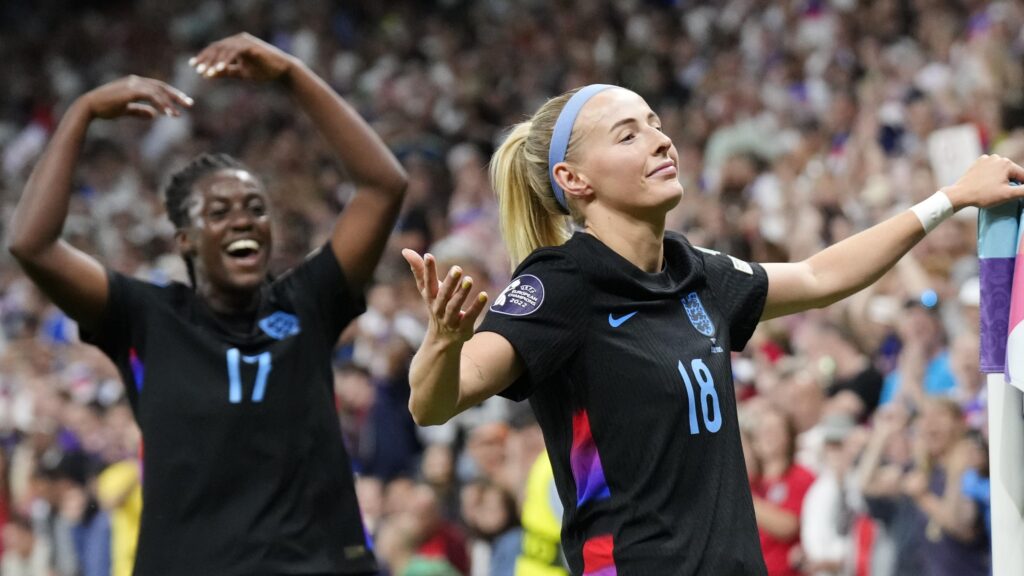As England prepares for the highly anticipated Euros final, the spotlight intensifies on two standout players, Michelle Agyemang and Chloe Kelly. After delivering absolute heroics in the semi-final against Italy, not for the first time, these two players have been questioned regarding their potential to start in a critical match. Agyemang’s last-minute goal and Kelly’s subsequent rebound from a saved penalty effectively turned the tide in what was a nail-biting thriller for the Lionesses. Now, the question looms—should they be promoted to a starting role, or does England’s coach, Sarina Wiegman, take a more cautious approach?
The semi-final match demonstrated the resilience of the English squad, particularly Agyemang and Kelly, who have continuously come off the bench and left an indelible mark on the game. The excitement surrounding their contributions intensifies as the finals against either Germany or Spain approach. Wiegman could opt to adjust her lineup, but the risk runs high in tampering with a winning formulation that has already proved effective.
Sarina Wiegman is in a position of contemplation, considering how to best deploy her squad. The challenge lies in balancing the game-changing attributes of Agyemang and Kelly against the performance and chemistry of the established lineup. Soccer experts and pundits have referenced historical precedents, echoing sentiments from Euro 2022 where substitutes like Alessia Russo and Ella Toone made significant impacts off the bench. These players, acting as “finishers,” have become integral in turning matches, which adds an additional layer of tactical consideration for Wiegman.
The opinion of the experts is divided. On one hand, Rachel Daly, an ex-England striker, emphasizes that Wiegman’s current strategy is successful, suggesting that changing a formula that works can be counterproductive. She asserts that it’s essential to understand the value impact players bring. In contrast, former Lioness goalkeeper Siobhan Chamberlain is adamant that Wiegman is likely to stick with her original starting eleven. Describing Wiegman’s approach, she argues that trusted players often dictate the lineup, suggesting a degree of loyalty to players who are fit and have consistently performed.
Alternatively, voices like former England midfielder Karen Carney argue for the necessity of fresh legs in the lineup, particularly given the considerable weariness demonstrated during the back-to-back knockout matches that went into extra time. Agyemang and Kelly have made notable contributions during the tournament, making the call for their inclusion more compelling. With only one change made in the transition from the quarter-finals to the semi-finals, the fatigue among existing starters could play into Wiegman’s decision-making process.
Fan reactions and opinions about the potential starting lineup have been expressed across various platforms. Some fans believe Agyemang brings energy to the match which can be advantageous as a substitute, while others argue for Kelly’s undeniable skills and ability to prompt scoring opportunities from the first whistle. The resounding question remains: should they begin the match or maintain their impactful presence from the sidelines?
These ongoing debates encapsulate the excitement surrounding the England women’s national team as they prepare for arguably one of the most significant matches in their history. The dynamics of Agyemang and Kelly being potential starters for the Euros final adds an intriguing layer to the storyline as supporters and analysts alike speculate on Wiegman’s ultimate decisions. As the clock counts down to the final whistle, the anticipation mounts—not only for the outcome of the match but also for the strategies that will unfold on the grand stage.












